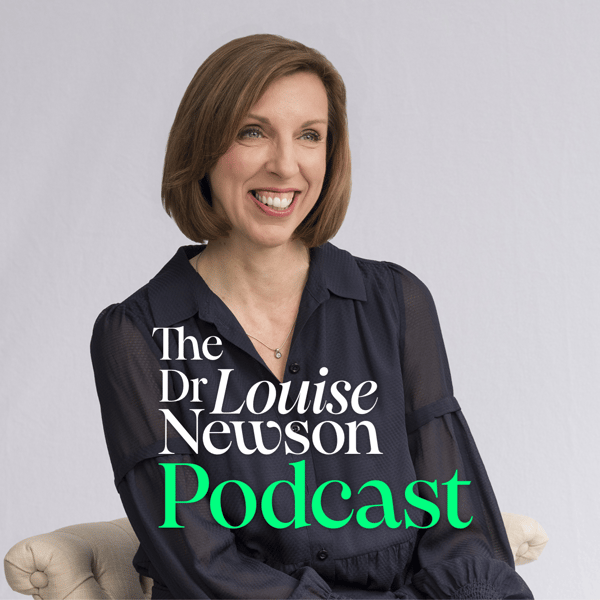179 - Advancing menopause care after breast cancer with Dr Sarah Glynne
The Dr Louise Newson Podcast
Dr Louise Newson
4.8 • 798 Ratings
🗓️ 22 November 2022
⏱️ 35 minutes
🧾️ Download transcript
Summary
Transcript
Click on a timestamp to play from that location
| 0:00.0 | Hello, I'm Dr. Louise Newsome and welcome to my podcast. I'm a GP and menopause specialist and I run the Newsome Health Menopause and Wellbeing Centre here in Stratford-Bron-Avon. I'm also the founder of the Menopause charity and the Menopause support app called Balance. |
| 0:29.9 | On the podcast, I will be joined each week by an exciting guest to help provide evidence-based |
| 0:36.5 | information and advice about both the perimenopause and the |
| 0:40.9 | menopause. Today on the podcast, I'm very delighted, excited to introduce to you someone who |
| 0:51.6 | I've known for a while and we've now got very close relationship |
| 0:55.0 | academically and friendship as well. So it's someone called Dr Sarah Glynn who has agreed to talk |
| 1:01.6 | today about some of the work we're doing which we're really excited about. So welcome Sarah. |
| 1:07.4 | Hi. So Sarah, you were introduced to me by your lovely husband, Paul, and my husband's |
| 1:13.3 | called Paul. So there you go, a bit of a connection there. And you, like me, have got another |
| 1:18.8 | degree as well as medicine, because obviously a medical degree isn't enough. For some of you who are |
| 1:23.1 | listening, know that I've got a pathology and immunology degree and you've got a degree in allergy. |
| 1:28.4 | So there's a big overlap actually. |
| 1:30.2 | And I hope you don't mind me saying this, our geekiness actually. |
| 1:33.4 | Absolutely. |
| 1:34.9 | Is that all right to say? |
| 1:36.0 | I'm very proud to be a fellow geek. |
| 1:38.8 | So we love seeing patients. |
| 1:42.6 | And, you know, medicine is a great great privilege and both of us get a lot of |
| 1:47.3 | satisfaction making people feel better when both went into medicine to make a difference to |
| 1:53.3 | help as many people as possible but actually with medicine you have to understand what you're |
| 1:59.8 | doing and sometimes it's really hard, |
| 2:02.2 | isn't it, to know what the best thing is for that patient sitting in front of you. And I know |
... |
Please login to see the full transcript.
Disclaimer: The podcast and artwork embedded on this page are from Dr Louise Newson, and are the property of its owner and not affiliated with or endorsed by Tapesearch.
Generated transcripts are the property of Dr Louise Newson and are distributed freely under the Fair Use doctrine. Transcripts generated by Tapesearch are not guaranteed to be accurate.
Copyright © Tapesearch 2025.

